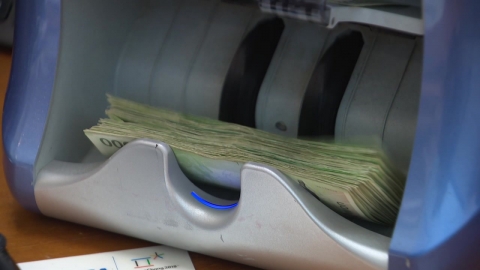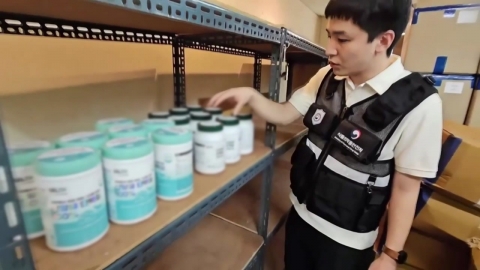Causes increase in household debt, bank mortgage loans soar
Strengthen management from September..."Expected slowing growth in Q4"
Total household debt hit an all-time high in the third quarter, led by banks' mortgage loans, as home sales transactions in the Seoul metropolitan area increased.
It was 1,913 trillion won, up 18 trillion won from the second quarter, approaching 2,000 trillion won, and the growth is expected to slow down from the fourth quarter due to the financial authorities' policy to curb household debt.
Reporter Ryu Hwan-hong reports.
[Reporter]
In the third quarter of this year, household debt reached an all-time high of 18 trillion won larger than in the second quarter.
According to the Bank of Korea, household credit, a comprehensive household debt, including household loans and sales credit, the amount of card usage before payment, reached 1,913.8 trillion won in the third quarter.
Household debt fell by 3.1 trillion won in the first quarter of this year, but it has increased sharply since the second quarter, increasing by 18 trillion won in the third quarter, and is on the verge of entering 2,000 trillion won.
It was the bank's mortgage that drove the increase in household debt.
This is because the demand to buy homes by taking out loans surged in the first and second quarters of this year as home sales transactions in the Seoul metropolitan area increased.
The bank's mortgage loans increased by 9.6 trillion won in the first quarter, but increased by 16.7 trillion won in the second quarter and a whopping 22.2 trillion won in the third quarter.
The increase of 22.2 trillion won in the third quarter was the highest ever.
The BOK explained that home sales transactions, which had increased mainly in the Seoul metropolitan area, affected banks' mortgage loans with a lag.
However, the second phase of stress DSR, a high-intensity loan tightening period, has been implemented since September, and household debt growth is expected to slow down from the fourth quarter as home sales transactions in the Seoul metropolitan area are on the decline in the second half of the year.
[Kim Min-soo / Head of the Bank of Korea's financial statistics team: Real estate transactions have been slowing since July, especially in the Seoul metropolitan area, so we expect the slowdown in household debt growth that follows home transactions to continue for a while]
However, in the fourth quarter, demand for loans is flocking to mutual finance such as Nonghyup, Suhyup, and Saemaul Geumgo, savings banks, and credit-specialized financial companies, and blocking the balloon effect is emerging as a key task in household debt management.
I'm YTN's Ryu Hwan Hong.
editing video;Han Su-min
※ 'Your report becomes news'
[Kakao Talk] YTN Search and Add Channel
[Phone] 02-398-8585
[Mail] social@ytn.co.kr
[Copyright holder (c) YTN Unauthorized reproduction, redistribution and use of AI data prohibited]
Economy
More- Interest income is 'quick' despite the reduction in additional interest rates, why?
- Hyundai Motor's official apology... "Find out the cause of the accident and take necessary measures."
- CJ CheilJedang "No decision has been made on the sale of bio business."
- [Economy PICK] "Working Mom" has increased, but she's still hit by "house chores."








![[G-Star 2024] 210,000 people visited G-Star, "Successful Finishing"](https://image.ytn.co.kr/general/jpg/2024/1118/202411181130300591_h.jpg)
